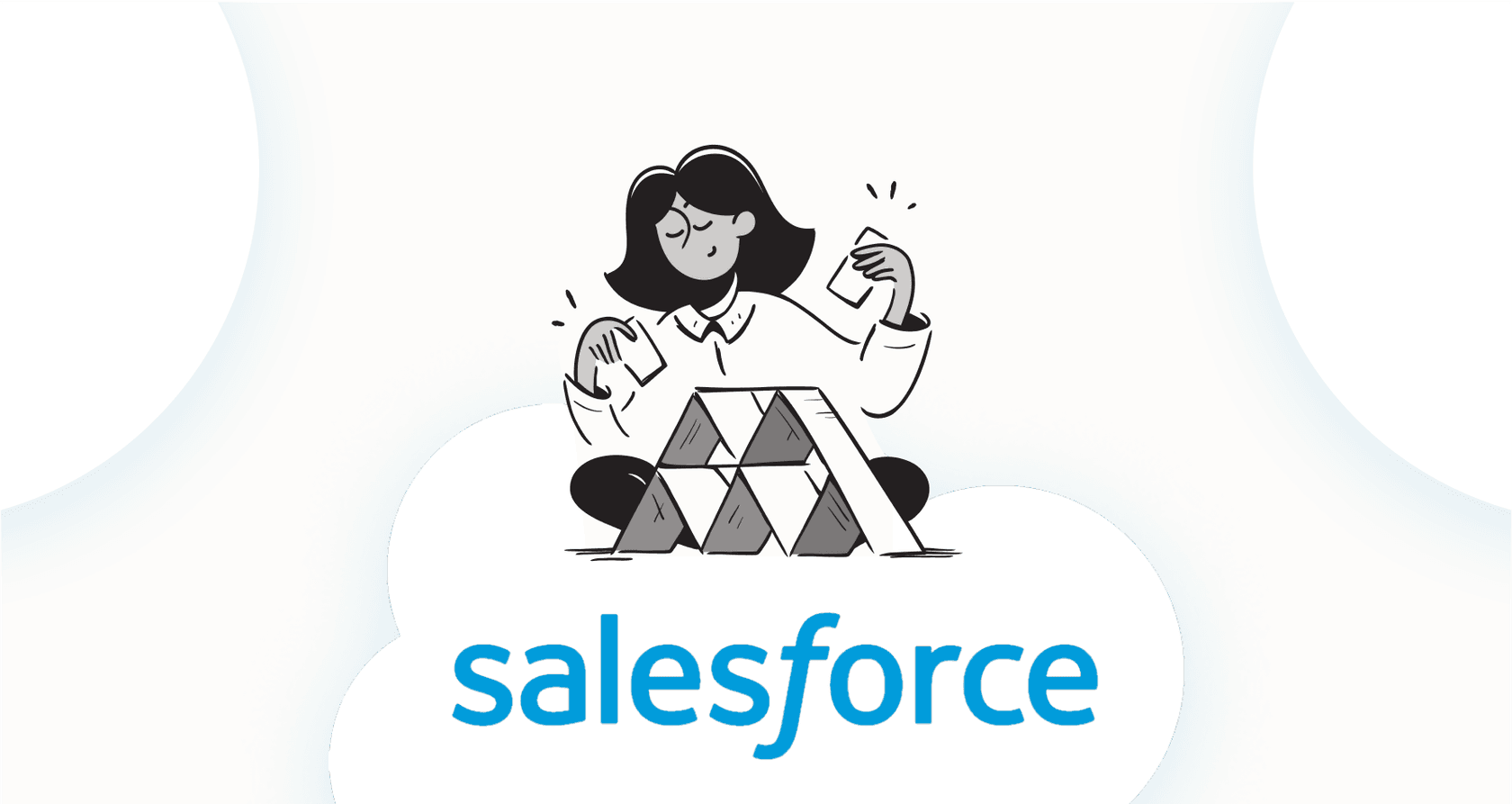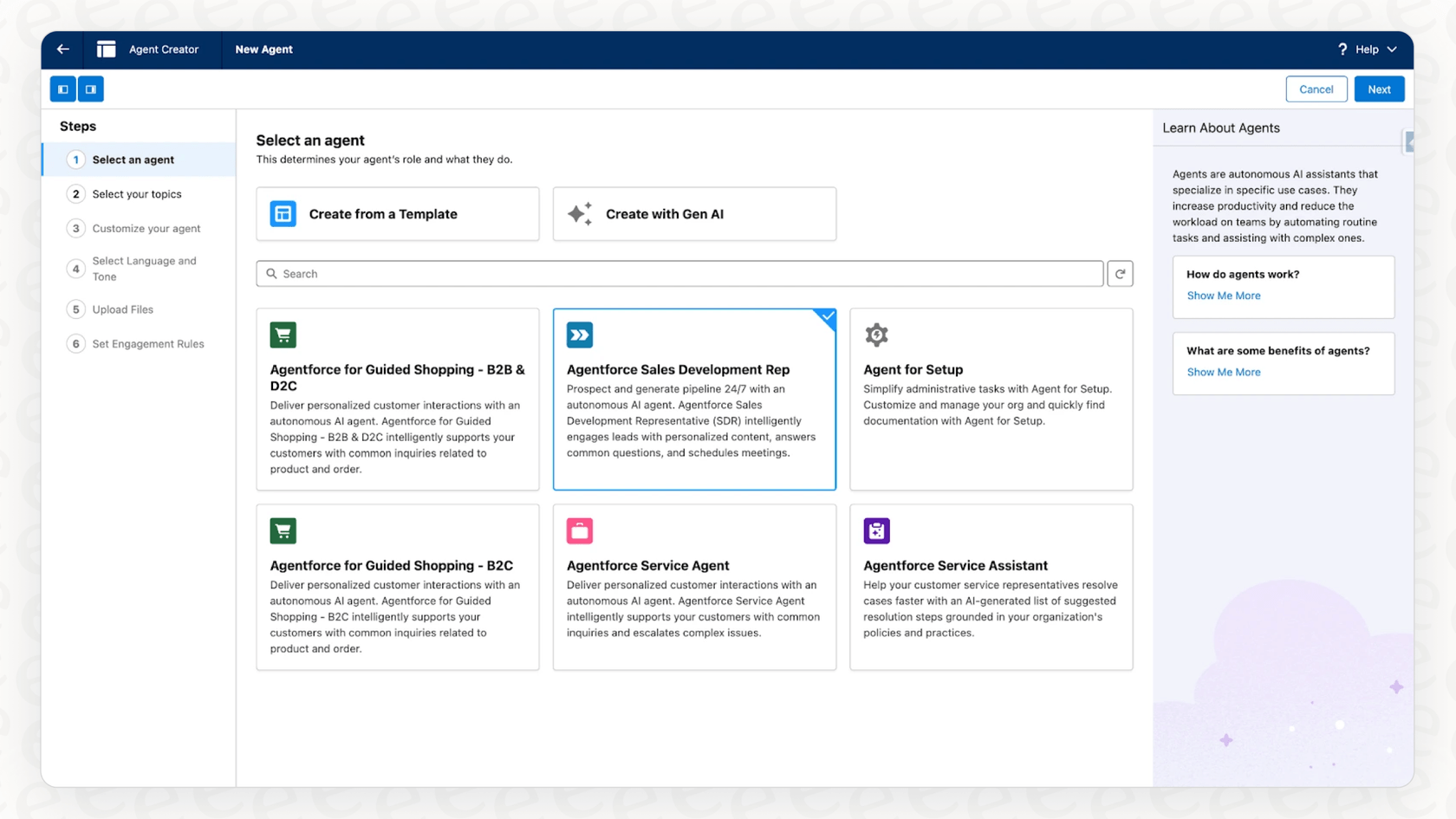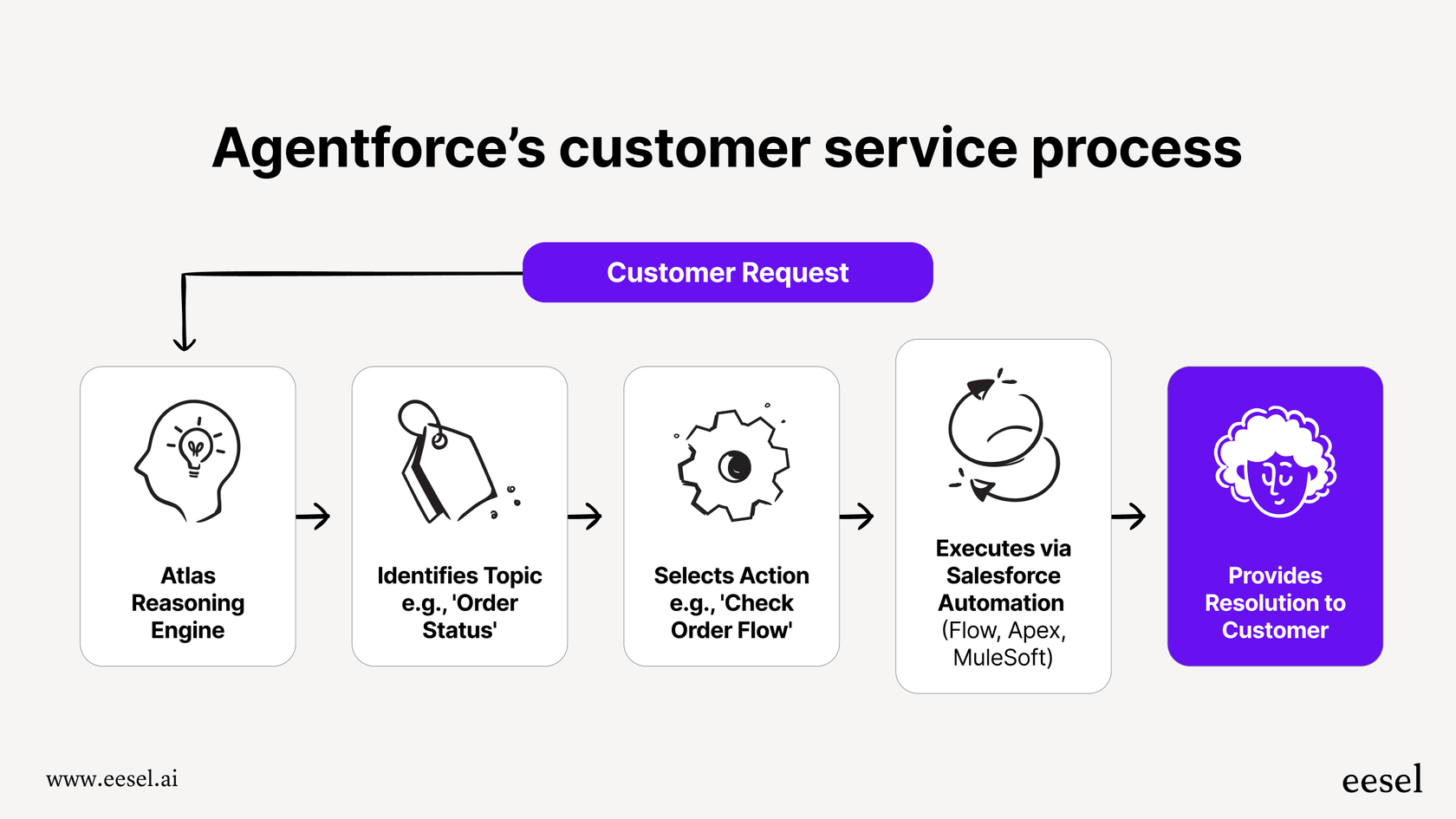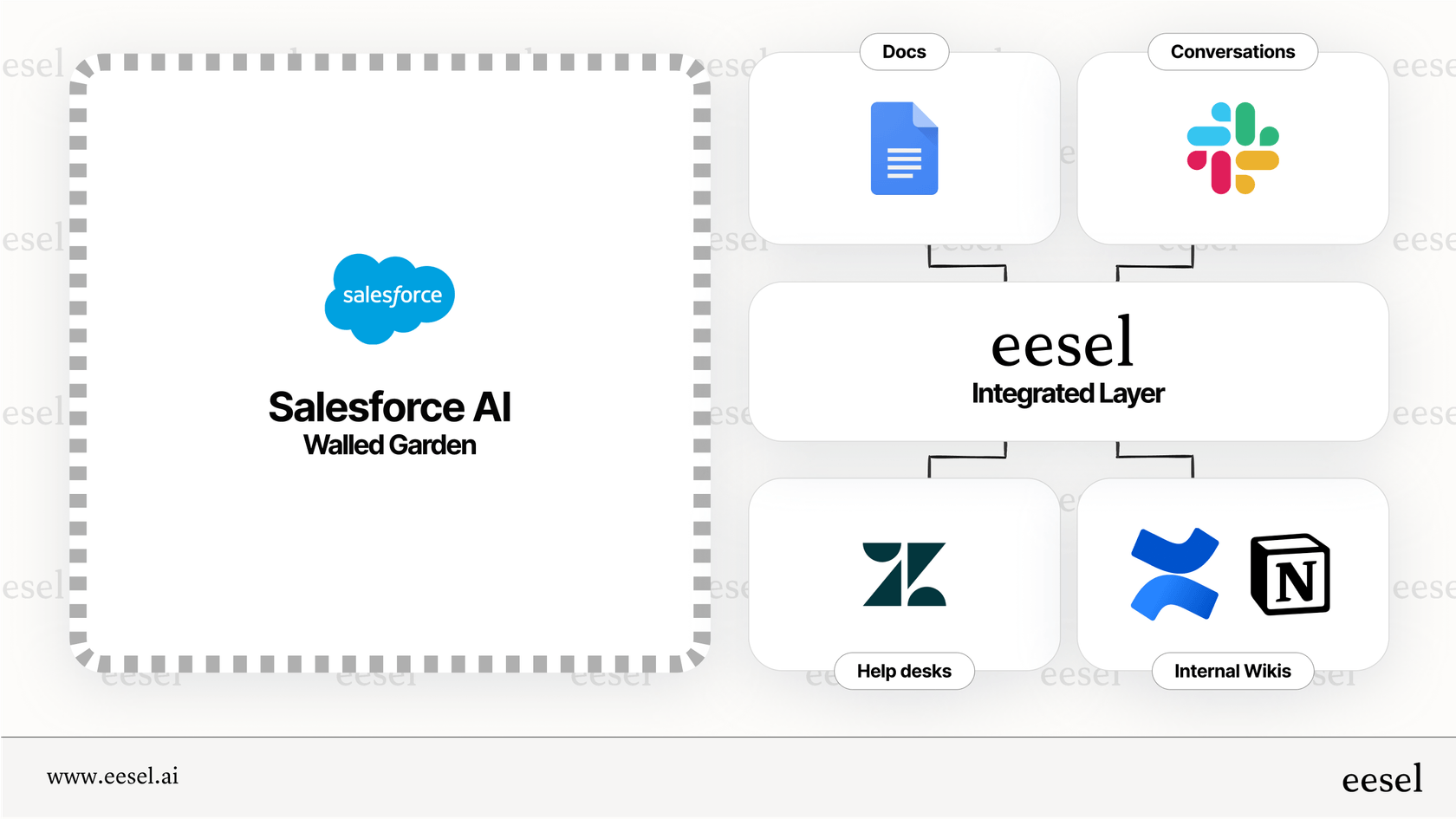
So, the big news from Dreamforce 2025 is officially out: Salesforce is going all-in on its partnership with OpenAI. The headline promise is pretty massive, integrating AI like GPT-5 directly into the world's number one CRM to create what they're calling an "Agentic Enterprise." It’s a bold vision where AI isn’t just another button to click, but a core part of how your business actually runs.
But what does that really mean for you and your team on a Tuesday afternoon?
This is more than just another feature update. It’s a potential shift in how you work with your most important business data. In this guide, we’ll cut through the marketing noise and give you a straight-up, practical look at what Salesforce integrations with GPT-5-Pro actually involve. We’ll cover the new capabilities, the reality of getting it all working, and what it might actually cost you.
What are Salesforce integrations with GPT-5-Pro?
This new wave of AI integration is happening through a platform called Agentforce. You can think of it as a blend of Salesforce’s CRM muscle and OpenAI’s brainpower, all designed to make your daily grind a bit more conversational.
Salesforce Agentforce explained
Agentforce is basically Salesforce's central command for building and using AI agents across its entire universe, including the Sales, Service, and Marketing clouds. The main goal is to let you talk to your CRM data in plain English. Instead of wrestling with complex reports or clicking through endless dashboards, you can just ask questions and get answers. It’s meant to make your work feel more natural.
The power of OpenAI’s GPT-5 models
GPT-5 is the latest large language model (LLM) from OpenAI, and it's a significant step up. It's much better at advanced reasoning, can understand images and voice, and gives surprisingly expert-level answers on a ton of topics. The "Pro" version is the top-tier model, built for heavy-duty business tasks. This is the engine that makes Agentforce smart.
How the integration works in practice
The integration lets Agentforce use GPT-5 as its brain. This means you can do some pretty complex stuff right from the apps you already use, like Salesforce, Slack, or even inside the ChatGPT interface itself. For example, you could ask your AI agent to give you the rundown on your recent sales calls, draft a follow-up email, or analyze customer feedback without ever having to switch windows.
To keep all your company data safe, everything is filtered through the Einstein Trust Layer. This is Salesforce's security setup that masks sensitive info and makes sure your private data isn't used to train OpenAI's public models.
What can Salesforce integrations with GPT-5-Pro do for your business?
Salesforce is highlighting some use cases that could genuinely change how your teams operate. Let's look at a few of the most interesting ones.
Supercharge your sales team
For sales folks, this is all about getting more done, faster. Reps can use natural language to pull up account summaries, write personalized emails, or spot high-priority leads without having to build a custom report from scratch.
Picture a sales rep typing into Slack, "Summarize my last three calls with Acme Corp and draft an email mentioning their interest in our new product line." Agentforce, with GPT-5, can grab that data from Salesforce, whip up a summary, and produce a ready-to-send email in just a few seconds.

Revolutionize customer service workflows
On the customer support side, these AI agents could take a huge weight off your team's shoulders. They can handle the first wave of customer questions, give instant answers from your Salesforce Knowledge base, and automate the process of creating and routing support tickets. For example, an AI agent in a chat box could look up an order status in Salesforce and give the customer an immediate update. If things get too complicated, it can pass the conversation to a human agent with all the context attached.

This isn't just a hypothetical. Reddit actually used Agentforce for their advertiser support and managed to deflect 46% of cases, which freed up their agents to tackle the trickier problems.
Create new conversational commerce channels
The partnership also rolls out something called the Agentic Commerce Protocol. This lets businesses sell products directly inside chats like ChatGPT. A customer asking for "waterproof running shoes" could see product suggestions from your store and buy them right there using a checkout powered by Agentforce Commerce and Stripe, all without leaving the chat. It's a whole new sales channel that meets customers right where they are.
The reality of implementing Salesforce integrations with GPT-5-Pro
While the possibilities sound great, it's important to be realistic about what it takes to get these integrations off the ground. Getting from a slick Dreamforce demo to a working AI assistant in your company comes with a few real-world hurdles.
The complex setup process
Agentforce is powerful, but it's definitely not a simple plug-and-play solution. Getting started means a lot of configuration inside the already-sprawling Salesforce environment, using tools like Agentforce Builder and Prompt Builder. Just a quick glance at the extensive Salesforce help documentation tells you there’s a steep learning curve.
For most companies, this will probably mean leaning heavily on dedicated Salesforce admins with special AI training or hiring expensive consultants. It's a full-blown project that needs careful planning and a serious investment of time and money.
The deep ecosystem lock-in
Let's be clear: this isn't a casual integration. It's designed to pull you deeper into the Salesforce world. The AI agents are built to work best with Salesforce data and objects. Getting your Salesforce data connected is a breeze, but trying to pull in knowledge from other places like Google Docs or Confluence can get clumsy and might mean buying more Salesforce products or paying for custom development.

A simpler alternative for agile teams
If all that sounds like a bit much, you're not alone. For teams that need to be nimble and can't put everything on hold for a six-month implementation project, there are simpler, more flexible options out there.
eesel AI is an AI platform built for exactly this scenario. While Salesforce requires deep platform configuration, eesel AI is completely self-serve, letting you go live in minutes, not months. Instead of forcing you into one ecosystem, eesel AI connects directly to the help desk you already use, whether that's Zendesk, Freshdesk, or Intercom, and unifies all your scattered knowledge with one-click integrations. You get the benefits of AI without having to overhaul your entire toolkit.

Understanding the pricing of Salesforce integrations with GPT-5-Pro
Figuring out the true cost of Salesforce's AI is one of the biggest headaches for any business thinking about jumping in. The pricing is, to put it mildly, not straightforward.
The Salesforce pricing model: Credits and complexity
Salesforce prices its AI features on a consumption model, using things called "Flex Credits" or "Einstein Requests." But good luck figuring out what that translates to in actual dollars. Most of Salesforce's product pages, including the ones for Einstein AI and Agentforce, just point you to a "Contact Sales" button. This means you can't really estimate your costs without getting on the phone for a full sales cycle.
The biggest issue with a usage-based model is its unpredictability. A busy month for your support team could lead to a shockingly high bill. This makes budgeting a guessing game and almost penalizes you for being successful.
A transparent and predictable pricing alternative
This is another spot where a tool like eesel AI really shines. eesel AI's pricing is designed to be direct and transparent. It offers clear, tiered plans based on a set number of monthly AI interactions, with no per-resolution fees. You know exactly what you're paying every single month, no matter how many tickets your AI agent solves.

Even better, eesel AI has flexible month-to-month plans you can cancel anytime. This takes the financial risk out of trying an AI solution and lets you scale things up or down as you need, without getting stuck in the long-term annual contracts that big enterprise vendors like Salesforce often demand.
| Feature | Salesforce Agentforce with GPT-5 | eesel AI |
|---|---|---|
| Setup Time | Weeks to months; often requires certified experts. | Go live in minutes; fully self-serve. |
| Pricing Model | Complex, usage-based (credits/requests); often requires sales call. | Transparent, predictable tiers; no per-resolution fees. |
| Knowledge Sources | Primarily Salesforce data; complex to add external sources. | Instantly connects to help desks, Confluence, Google Docs, etc. |
| Integration | Deeply embedded in Salesforce ecosystem (vendor lock-in). | Plugs into your existing tools (Zendesk, Slack). |
| Customization | Powerful but complex, configured within Salesforce platform. | Granular control via simple UI; choose exactly what to automate. |
| Testing | Requires sandbox environment and technical setup. | Powerful simulation mode to test on past tickets before launch. |
This video demonstrates how GPT-5 agents can connect with Salesforce to automate various CRM tasks directly from a single prompt.
Salesforce integrations with GPT-5-Pro: Powerful but at a price
Look, there's no denying that the Salesforce and OpenAI partnership has produced something powerful. The idea of an "Agentic Enterprise" is compelling, and the potential uses for sales and support teams are genuinely impressive.
But all that power comes with enterprise-level complexity, unpredictable costs, and a vendor lock-in that just won't work for every business. For teams that need to stay agile, keep budgets predictable, and use the tools they already have, the Salesforce approach can feel like a bit of a straitjacket.
So, what if you could get the power of enterprise AI without the enterprise baggage?
Get started with AI that works for you, not the other way around
If you're looking for an AI solution that connects to your existing tools, brings all your knowledge together instantly, and has clear, predictable pricing, it's time to give eesel AI a look.
You can set up your first AI agent in a few minutes and even simulate how it would perform on your real data, completely risk-free.
Frequently asked questions
Salesforce integrations with GPT-5-Pro leverage Agentforce, Salesforce's AI platform, with OpenAI's advanced GPT-5 LLM. Their goal is to create an "Agentic Enterprise" where AI agents can interact with CRM data using natural language, automating tasks and providing insights across sales, service, and marketing.
These integrations are designed with security in mind through the Einstein Trust Layer. This layer masks sensitive information and ensures that your private company data is not used to train OpenAI's public models, maintaining data privacy.
For sales, benefits include faster lead prioritization, personalized email drafting, and quick account summaries. Customer service teams can use it to automate initial customer inquiries, provide instant answers from knowledge bases, and streamline ticket routing, freeing up human agents for complex issues.
Implementing Salesforce integrations with GPT-5-Pro through Agentforce is a complex, multi-stage process. It requires significant configuration using tools like Agentforce Builder and Prompt Builder, often necessitating specialized Salesforce admins or external consultants due to a steep learning curve.
Pricing for Salesforce integrations with GPT-5-Pro is based on a consumption model, using "Flex Credits" or "Einstein Requests." A key challenge is its unpredictability; costs can fluctuate significantly based on usage, making accurate budgeting difficult without direct consultation with Salesforce sales.
While powerful, these integrations are presented as an enterprise-level solution due to their complexity, cost structure, and deep ecosystem lock-in. Agile teams or those preferring predictable pricing and integration with existing diverse tools might find the approach less suitable than alternative AI solutions.
Share this post

Article by
Kenneth Pangan
Writer and marketer for over ten years, Kenneth Pangan splits his time between history, politics, and art with plenty of interruptions from his dogs demanding attention.







